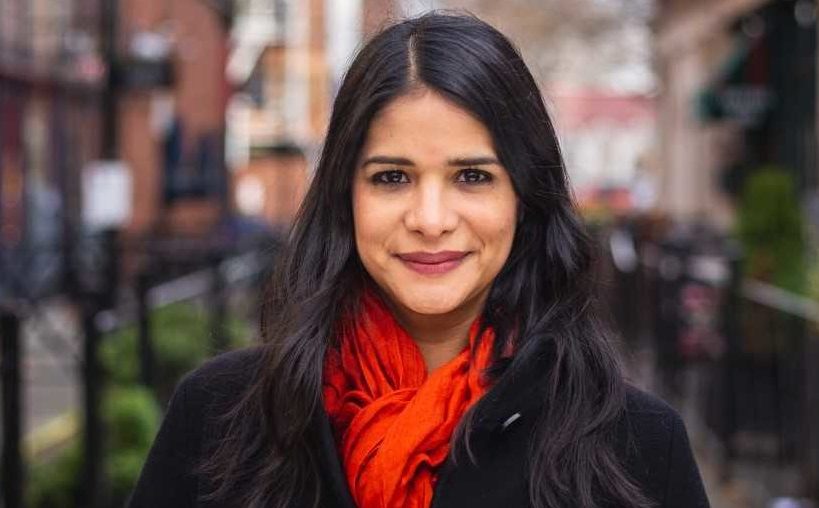Juliana Jara may publish about tech trends, but she has a bigger message for the world: discover empathy. That’s the strategy that’s brought her success as a woman immigrating from Latin America, and she says it’s the fix for our social woes, as well.
A native of Colombia, Jara attended the Universidad del Rosario in Bogotá for her master’s in journalism, following an undergrad in political science and international affairs. Now she’s Managing Editor at Digital Trends en Español, the Spanish language sister site to Digital Trends. She spends her days strategizing what content they publish and overseeing day to day operations of the site. Between managing responsibilities, she also writes a few monthly reviews and a weekly op-ed.
She describes herself as a ‘bilingual communications expert.’ But the kind of bicultural competence behind her success is more than just language skills. “Having success is not a matter of only following your dreams,” Jara says. “It is very difficult as someone who was born, raised and educated abroad, whose native language is not English, to have the appropriate connections in a new country to be able to follow your dreams.”
Adapting to foreign cultural norms and taking the initiative to get out and meet people have been integral components to flourishing abroad. Jara’s advice for professional expats? “Get out, don’t be shy and let people know you! Invest in your education and do not miss a single chance for other people to meet you.”
Succeeding Against Bias in a Foreign City
Jara leads a team of 100 percent woman immigrants from her office in downtown Portland’s tallest building. Portland, a city not known for its racial inclusivity (or its media jobs, for that matter), might seem like a strange choice over more culturally and professionally rich American cities. But Jara found a home at Digital Trends, the Portland-based publisher that has quickly become America’s largest independently-owned tech publisher.
She started out a few years ago as a contributing writer for Digital Trends’ new Spanish language channel. She opened Facebook and Twitter accounts for them, and kept social media updated with fresh content between articles. As Digital Trends grew, she took on more leadership and responsibility. But it hasn’t all been roses and sunshine for her in the rainy Rose City.
“Usually, when people learn I’m originally from Colombia, the first thing that pops in their head is Pablo Escobar and drugs,” she says. “It’s a shame that something so negative is the one thing people know about the country you’re from.” She acknowledges that while it can be sad and upsetting, she tries to “find a way to show the bright side of what we have to offer.” Some of the finest charms of her home country, she reminisces, are its amazing coffee, beautiful flowers and the best emeralds in the world.
Optimism For a More Inclusive Society
And she shows a hopeful optimism for a more inclusive society. “As someone who grew up in a multicultural environment, I believe that the best way to work towards this is showing the kids—who are our future—the amazing things that other cultures can offer you.” She cites the Pixar movie Coco as an example of positive representation that highlights the beauty of Latin American traditions.
She says working toward inclusivity on a societal level also requires the individual courage to seek out face-to-face interactions. “Exposure to people from different backgrounds opens anyone’s minds. To me, the best definition of inclusion has already been summarized by the French: Liberty, Equality and Fraternity.”
Finding Balance in a Polarized Media Landscape
But it’s no secret that our political climate has the media are under fire, and immigrants are threatened by xenophobia at the highest levels of government. When we asked what she thinks we can do to facilitate productive public discussions, Jara again returns to the heart: “To me it’s all about empathy.”
Taking it back to a personal, humanizing level is key, she says, to turning the media landscape around. For Jara, there is no difference between inequality at societal or personal levels.
“Once you can get out of your comfort zone and get into someone else’s shoes, understanding their struggles, we can start talking about having a productive discussion. Lack of empathy is what is making the media landscape so polarized,” she says. “One’s experiences and points of view can’t be the rule by which we, as human being judge each other and make decisions. We live in a society for a reason: because we’re stronger together.”
She acknowledges that it means making changes from within media offices, too. Jara suggests publishers “adapt to the way our audiences prefers to read or listen to the news” by communicating in ways that are approachable.“At the same time,” she says, “improving the media landscape is everyone’s responsibility and not only the media’s.” Because of the role the press plays in an ostensibly free democracy, the burden to create change falls on the reader base as much as on publishers.
“Media is referred usually as the Fourth Estate or Fourth Power for a reason,” she says. “It’s a way to check and balance how we are doing as an organized society. It is another way for citizens to voice what they like and dislike about how things are being run.”
Positive change will come from empathy on the reader’s level, the publisher’s level, and in person-to-person interactions.
Jara’s cooperative, empathetic courage lends a hopeful optimism to her writing, and to the way she runs her media room. As her influence in the media landscape continues to grow, Jara stands as an example of how we can succeed not just as individuals facing the odds, but as a greater community striving for hope.
This article was originally published on Thrive Global on January 21, 2019.
Digital TrendsDigital Trends en EspañolJuliana Jaramediatech


